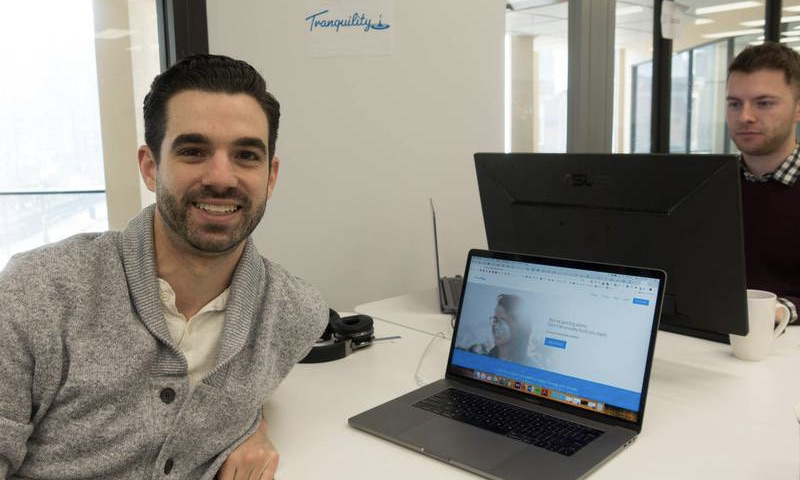When health insurance giant Green Shield Canada bought virtual therapy startup Tranquility Online in August, the players stayed mum on the specifics of the deal. But at an event Thursday, Tranquility Co-Founder Joel Muise told the story of the acquisition for the first time.
Tranquility, still based in Halifax under Muise’s leadership, offers a website and app that provide a digital version of cognitive behavioral therapy, which is a form of psychotherapy designed to cultivate self-awareness and short-circuit harmful patterns of thought. Muise co-founded the company in 2017 with Dalhousie psychologist and neuroscientist Alissa Pencer.
Speaking during virtual startup incubator Propel’s online ceremony for its Gerry Pond award, Muise said he had always seen an exit as a probable outcome for Tranquility because he disliked the day-to-day process of running a company.
“I probably had a hard time admitting to myself that, deep down... I did not really want to be CEO of this company,” he said. “I wanted to have the company exist in the world.”
The opportunity to sell Tranquility, Muise said, was created by one of its numerous competitors going public. He did not specify which competitor, but in January 2021, New York City’s Talkspace listed on the Nasdaq via a SPAC -- special purpose acquisition company -- in a deal worth US$1.4 billion.
Teladoc, the parent company of another competitor, BetterHelp, listed on the New York Stock Exchange in 2015 and now has a market cap of just under US$12 billion.
Muise said the company that went public last year galvanized a sentiment already held by many insurance companies and other businesses in the health space: that the virtual therapy industry was maturing, leaving less room for new players.
Many health insurers wanted their own virtual therapy platforms to offer clients, Muise said, and with the market crowded, they were left searching for existing businesses to acquire.
In December 2020, a company cold-called Muise’s team about buying white label software, and in the space of a 45-minute phone call, ultimately admitted they would prefer to buy the startup outright.
Tranquility was also in talks for white label deals with two other companies, and when Muise phoned his lawyer to discuss the first acquisition offer, the duo concluded that all three companies would likely be bidders in a potential sale.
“Let's be honest, those conversations were never about white labeling,” said Muise. “It's a silly game we play.”
Tranquility hired a broker and began formally entertaining bids via an auction safeguarded by non-disclosure agreements, with the three companies joining the bidding.
A few months later, Green Shield entered the fray. Muise said that even before Green Shield started bidding, he had seen the Toronto insurer, with its market leader status in Canada, as the ideal buyer. But he leveraged the auction format to drive Tranquility’s sale price higher.
“(Green Shield) were our choice from the beginning,” he said. “So we were just making sure we got the full value for our shareholders by running the auction.”
Muise added that hiring a broker for the auction proved to be an important investment, eliminating the personal conflicts that otherwise often arise during negotiations and allowing Tranquility to stay on good terms with its bidders.
“Me and my boss (at Green Shield) now have an amazing relationship,” said Muise. “Because me and my boss weren't even involved in... the tough conversations.”










